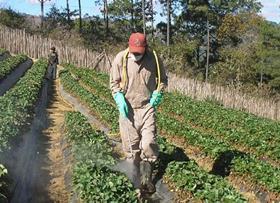
More leading fresh produce associations from Spain have voiced their disquiet over the European Union’s new pesticide proposals amid concern over the possible shortage of viable alternatives to the substances that are expected to be banned.
Valencia-based agricultural association La Unió said the European Parliament’s decision to vote in favour of the proposals could increase the costs of production and risk handing an advantage to non-EU exporters.
The association said in a statement: “This is not good news because it could lead to an increase in the price of pesticide products, without knowing whether there are economic and efficient substitutes.
'Research needs to be urgently carried out to find phytosanitary products that do not add to producers’ costs.”
La Unió also warned that the ban on the 22 active substances covered by the legislation could lead to the creation of a black market with all the consequent risks that this would bring.
José Antonio García Fernández, director of Spanish interprofessional lemon and pomelo association Ailimpo, told Fruitnet that he was also worried about the impact of the new legislation on both production and sales in Europe.
“We are extremely concerned that the changes will lead to unfair competition for EU-grown products from fruit and vegetables produced in non EU countries which will not have to adhere to the same standards,” he said.
However, Mr García rejected earlier claims made by Asaja Murcia that Murcia’s citrus production levels could drop by as much as 40 per cent when the new regulations come into force.
“It doesn’t seem reasonable to us to send out messages of alarm, never mind to talk about percentages,” he said.
“Obviously, the legislation will have an impact by, for example lowering the production of kilos per hectare, but we are not overly concerned because one of the problems we have in the Spanish lemon sector is that of overproduction,” Mr García added.






No comments yet